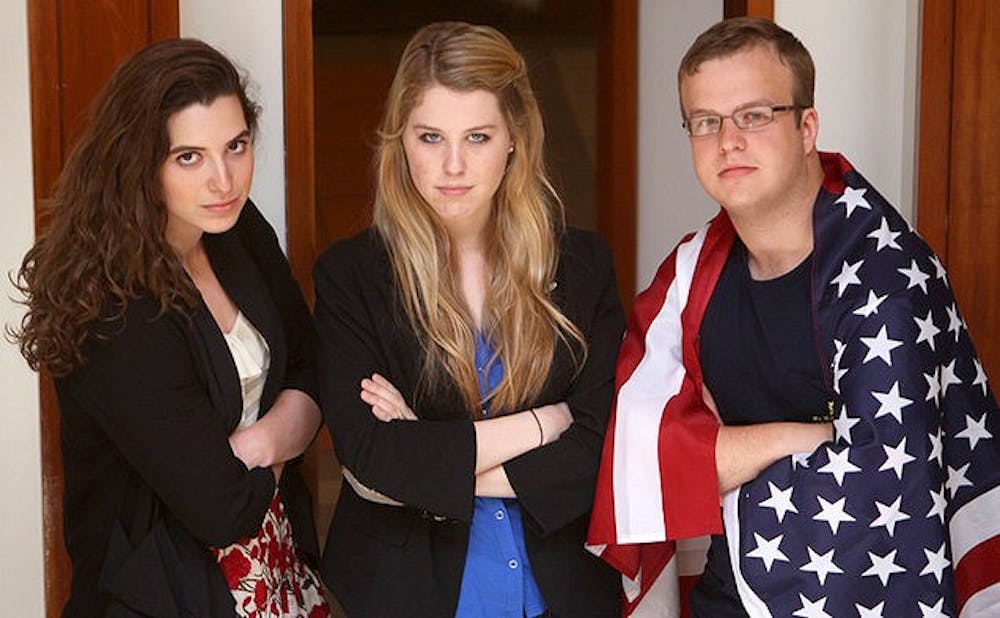A Duke student is proving that getting involved in the political process is much easier than some would think.
Sophomore Stefani Jones has garnered attention from national media, including Bloomberg News and congressional newspaper The Hill, for creating her own super political action committee, which—unlike traditonal PACs—are permitted to take unlimited donations from individuals, corporations and other groups.
Jones filed for a super PAC called “Americans for a Better Tomorrow, Yesterday” Monday. The Federal Election Commission received the filing Tuesday, according to the commission’s public document.
“I thought there would be more paperwork involved [with filing a super PAC] and that you’d have to raise a certain amount of money,” Jones said. “But all you have to do is open up a bank account. It’s very funny how simple it really is and how there are no rules right now with super PACs.”
Jones’ idea to create her own super PAC originated from an assignment in Public Policy 195: “Gridlock,” taught by David Schanzer, associate professor of the practice of public policy, and Donald Taylor, associate professor of public policy.
Jones joined two other students in her class—juniors Samantha Lachman and Harry Liberman, who are also columnists for The Chronicle—to complete a final project that identifies a problem in the political system and proposes a solution, Lachman said. The three students decided to focus on the FEC’s ineffectiveness with campaign finance.
“Literally a few days ago, Stefani thought it would be fun to see how easy it was to create a super PAC,” Lachman said. “Within two days, she filed the document and found out it was incredibly easy to do so.”
Jones said she researched super PACs, including Stephen Colbert’s “Americans for a Better Tomorrow, Tomorrow,” a super PAC he created in May 2011, before creating her own.
“I copied [Colbert’s] filing statement almost verbatim to make sure we had everything legally correct,” Jones said. “We basically wanted to start it to show how easy it is to do and show how absurd the process is.”
Schanzer said he was not surprised that students from his class took the initiative to create their own super PAC but said he will be more impressed if the super PAC manages to raise money.
“It’s one thing to file paperwork to form a political action committee,” Schanzer said. “What’s problematic is that small individuals can contribute lots and lots of money into these types of entities so that they can have a disproportionate amount of influence on elections.”
Jones said her group is currently thinking about the best way to solicit donations for the super PAC. They considered soliciting donations to oppose Amendment One—the controversial proposed amendment to the North Carolina Constitution banning same-sex marriage and civil unions—but dropped the idea because super PACs have to be used for federal issues.
Super PACs have several options for raising money, such as running advertisements on television, radio and the Internet, but can be constrained by having to disclose who donates to them, Lachman said. To abide by this rule, the super PACs could be formed as a 501(c)(4) organization based on a social issue, which does not have to disclose donors. The 501(c)(4) could then raise money and donate it to the super PAC.
“We are trying to figure out what we can do legally,” Jones said. “In making this, we understand that super PACs are very nontransparent. If we could do something with ours to highlight that—that would be ideal.”
Get The Chronicle straight to your inbox
Signup for our weekly newsletter. Cancel at any time.

